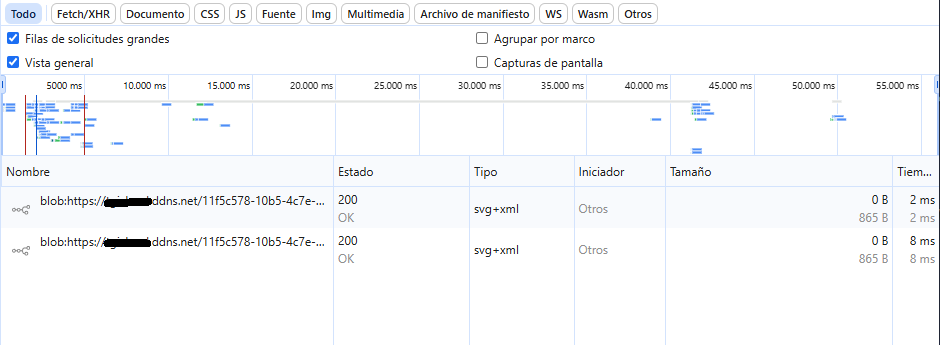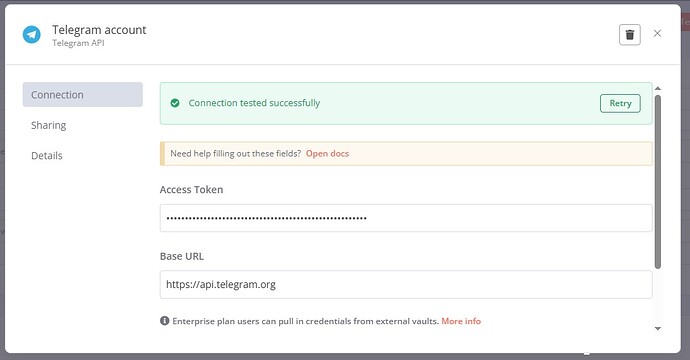Hello, I’m new to the community and new to n8n. I’ve only been using it for a couple of weeks, and I’d like to learn more about this product.
I’m a computer engineer, and I consider my technical knowledge to be high, or at least medium-high. However, after several days, I haven’t been able to solve a problem that seems to be a recurring one on this forum. I’ve read multiple posts about it in this community and other forums, but none of the solutions have worked for me.
First of all, I’d like to say that I’m Spanish and my English level isn’t very high, so I’ve translated this text using translation tools. I apologize if this translation isn’t very good.
I’ll explain the problem.
Describe the problem/error/question
A few days ago, I installed N8N locally on a Windows 10 computer using npm (I prefer not to use Docker for now, for reasons I won’t explain so as not to be too long-winded). I don’t want to use a tunnel due to the requirements of the project it’s for, although I’ve also tried it and haven’t gotten it to work.
Therefore, I have a Windows 10 computer, a fixed IP address within the local network, and on my router, I’ve redirected external port 443 to port 5678 of this machine.
Since the IP address is dynamic, I used dynamic DNS (DDNS) to have an updated domain pointed to this IP. I used both FreeDNS and NoIP (DDNS.net). For both domains, I requested a Let’s Encrypt certificate, which was installed correctly.
So far, so good. I can successfully access the N8N dashboard from both domains (or subdomains), which are something like (my_subdomain).moot.es and (my_subdomain).ddns.net, and I can work correctly.
The problem arises when I use a Telegram trigger. In this case, when I activate the node, it waits without responding to messages sent by Telegram.
The environment variables are set as follows:
GENERIC_TIMEZONE=Atlantic/Canary
TZ=Atlantic/Canary
N8N_HOST=(my_subdomain).ddns.net (I’ve also tried https://(my_subdomain).ddns.net)
N8N_PROTOCOL=https
N8N_RUNNERS_ENABLED=true
N8N_SSL_CERT=C:/Users/(User)/Documents/CertificadosN8N/fullchain.pem
N8N_SSL_KEY=C:/Users/(User)/Documents/CertificadosN8N/privkey.pem
NODEJS_PREFER_IPV4=true
WEBHOOK_URL=https://(my_subdomain).ddns.net
The Telegram node webhook tells me the following: Address:
https://(my_subdomain).ddns.net/webhook-test/638a02ec-dd74-47ae-bd6b-5b3d402a4b30/webhook
If I make a call to that address using curl with a POST while the node is active, I get this response:
{“message”:“Provided secret is not valid”}
Which I believe indicates that the node is listening correctly.
If I request information from the Telegram API with
https://api.telegram.org/bot***gC9XPIUSrGuwGoZMU/getWebhookInfo
I get this: result
{“ok”:true,“result”:{“url”:“https://(my_subdomain).ddns.net/webhook-test/638a02ec-dd74-47ae-bd6b-5b3d402a4b30/webhook”,“has_custom_certificate”:false,“pending_update_count”:20,“max_connections”:40,“ip_address”:“83...**”,“allowed_updates”:[“message”]}}
The same workflow installed on n8n.io works correctly.
I also tried disabling the Windows firewall and antivirus, but that didn’t solve the problem.
What is the error message (if any)?
There is no error, just waiting
Please share your workflow
It is a simple node of a Telegram trigger waiting for a message
Information on your n8n setup
- n8n version: 1.82.3
- Database (default: SQLite):
- n8n EXECUTIONS_PROCESS setting (default: own, main):
- Running n8n via (Docker, npm, n8n cloud, desktop app): npm
- Operating system: Windows 10

